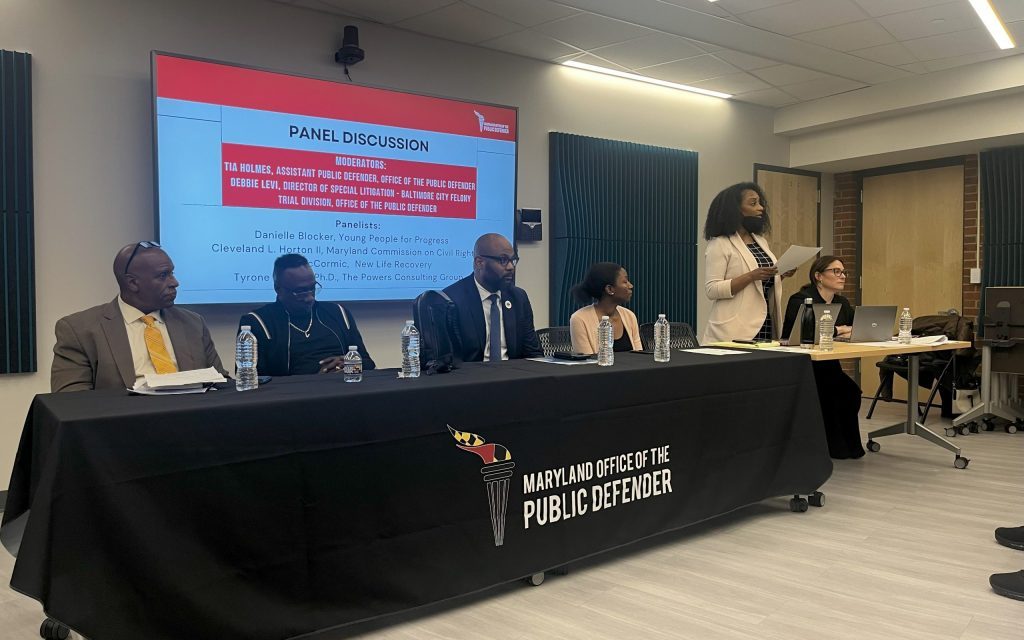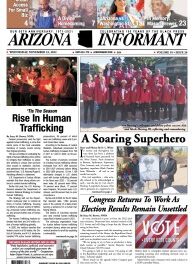By Megan Sayles
AFRO Business Writer
msayles@afro.com
Attorneys from the Maryland Office of the Public Defender (OPD) and local community leaders invited the public to learn about a new policy aimed at enhancing safety during traffic stops as part of panel discussion on Nov. 19. The conversation, held at the Baltimore County Public Library Catonsville Branch, covered a proposed statute that would make traffic offenses, like driving with expired tags or a broken taillight, secondary violations, which cannot be the sole reason for a police officer pulling a person over.
Across Maryland, 43 percent of traffic stops involved African Americans in 2023 though they only represent about 31 percent of the state’s population, according to the Governor’s Office of Crime Prevention and Policy. In certain areas, like Baltimore County, Black drivers were even more overrepresented with 54 percent of traffic stops involving African Americans in spite of them making up 32.3 percent of the population.

(AFRO Photo / Megan Sayles)
The new policy would aim to limit police interaction with the public, and in particular, communities who have been disproportionately stopped by officers.
“Officers are culturally and socially promoted for racism, for bias-based policing,” said Randy Williams, former sergeant for the Baltimore County Police Department. “They’re groomed to go into specialized units and for promotion because of stop and frisk on Black and Brown folks.”
Just before retiring from the department, Williams was responsible for tracking and analyzing bias-based policing. He examined aggregated data on traffic stops in Baltimore County from 2010 to 2014.
Williams discovered that just in 2010, 430 Baltimore County officers stopped African Americans at a rate of 80 percent or higher. Some officers solely arrested Black people.
“What I noticed over that analysis that I performed every year for the five years was that Blacks were always overrepresented than their demographics in each precinct,” said Williams. “Other demographics, like Asians and Whites, were always underrepresented.”
Under Maryland’s current law, six traffic offenses are treated as secondary violations:
- Driving with an object hanging from the rearview mirror
- Driving with a frame or border that partly obscures a license plate
- Driving with a partially hidden license plate
- Provisional license holders breaching passenger restrictions
- Driving without headlights in rainy conditions
- A passenger over 16 neglecting to wear a seatbelt in the back seat
The new policy would add nine other non-safety related offenses to be enforced as secondary violations:
- Driving an unregistered car or with expired tags
- Driving without a working headlight, brake lights and taillights
- Driving without mirrors or with obstructed or damaged mirrors
- Driving in a bus lane
- Window tint
- Neglecting to illuminate a license plate
- Neglecting to signal a turn, lane change or start due to nonfunctional equipment
- Excessive noise
- Littering
In 2023, Montgomery County Councilmember Will Jawando (D-At-large), with the help of local organizers, introduced a bill called the Safety and Traffic Equity in Policing (STEP) Act, which had similar provisions. It also had the same goal of curbing racial disparities in policing.
But, Maryland Attorney General Anthony Brown informed them that local jurisdictions would not be able to implement the law without a change to the state law.
“Statewide, ending these stops can be helpful in that they’re reducing harm to drivers, they’re reducing risk for police that are often likely to be hit by oncoming traffic and they’re allowing us to use our resources on things that are much more effective at preventing crashes and keeping us safe,” said Danielle Blocker, executive director of Young People for Progress, a social justice and advocacy organization based in Montgomery County.
Tia Holmes, assistant public defender for the OPD, emphasized the danger traffic stops can generate.
“We don’t want them to stop you for expired registration because that’s causing no issues. What it does is increase interactions, and it makes it very dangerous,” said Holmes. “Think of people like Philando Castile. We just want to save lives, and that’s why we’re here today.”
Castile, 32, was killed by St. Anthony, Minnesota police officer Jeronimo Yanez in 2016 during a traffic stop. Castile was in the car with his girlfriend Diamond Reynolds and her 4-year-old daughter when police pulled him over. While reaching for his driver’s license, Castile informed Yanez that he had a licensed firearm in the vehicle.
The officer instructed him not to reach for it or pull it out. Castile and Reynolds both confirmed to Yanez that he had no intention of grabbing the firearm, but Yanez shot Philando seven times at close range. Five bullets struck and killed him.
Castile is one in a number of African Americans who have lost their lives during traffic stops. According to the Center for American Progress, 600 Black people have been killed during the stops since 2017.
“We want to shift the narrative to understanding how dangerous traffic stops are, remove those from part of the narrative of policing and replace that with other less interactive instances with members of the public,” said Debbie Levi, director of special litigation in the Baltimore City Trial Division for the OPD.
The post Proposed legislation could limit non-safety related traffic stops appeared first on AFRO American Newspapers.











